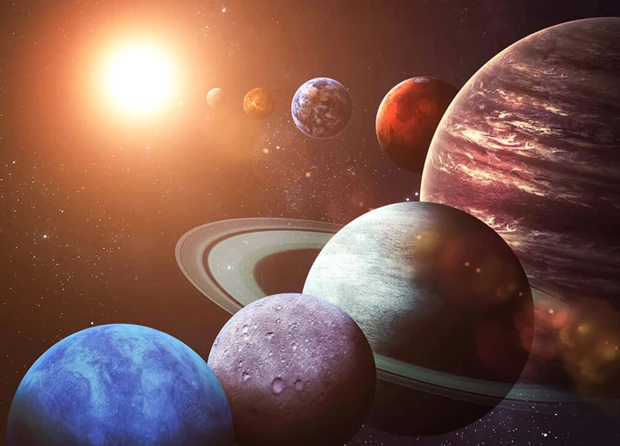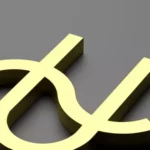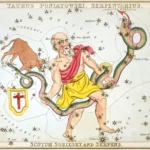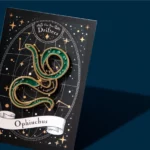Lost in the constellation of confusion, the controversy surrounding Ophiuchus and the 13th zodiac sign has captivated astrologers and enthusiasts alike. As ancient mythology intertwines with modern interpretation, questions arise about the origins, characteristics, and impact of this mysterious Serpent Bearer. Delve into the historical perspective and explore the current debate surrounding Ophiuchus, as we unravel the intricate web of astrology and bring clarity to the enigma of the 13th zodiac sign.
Contents
- The Origins of Ophiuchus
- The 13th Zodiac Sign Controversy
- Historical Perspective: Ophiuchus throughout the Centuries
- Modern Interpretation: Ophiuchus as the 13th Zodiac Sign
- Debunking Myths and Clarifying Misconceptions
- Conclusion
-
Frequently Asked Questions
- 1. Is Ophiuchus officially recognized as the 13th zodiac sign?
- 2. What are the astrological characteristics of Ophiuchus?
- 3. How does the presence of Ophiuchus impact the traditional zodiac signs?
- 4. How was Ophiuchus perceived in early zodiac systems?
- 5. Why was Ophiuchus dismissed and later rediscovered?
- 6. How does Ophiuchus fit into modern astrology?
- 7. What personality traits are associated with Ophiuchus?
- 8. How does Ophiuchus influence natal charts and horoscopes?
- 9. Does Ophiuchus align with astronomical facts?
- 10. What role does precession play in zodiac shifts?
- References
-
Frequently Asked Questions
- 1. Is Ophiuchus a new zodiac sign?
- 2. What does Ophiuchus represent in astrology?
- 3. How does Ophiuchus impact the traditional zodiac signs?
- 4. When was Ophiuchus rediscovered in modern astrology?
- 5. What are the personality traits of Ophiuchus individuals?
- 6. Does Ophiuchus have an influence on natal charts and horoscopes?
- 7. Does Ophiuchus align with astronomical facts?
- 8. What is the role of precession in zodiac shifts?
- 9. Can Ophiuchus compatibility be determined in relationships?
- 10. How can Ophiuchus be incorporated into daily horoscopes?
- References
- Read More
The Origins of Ophiuchus
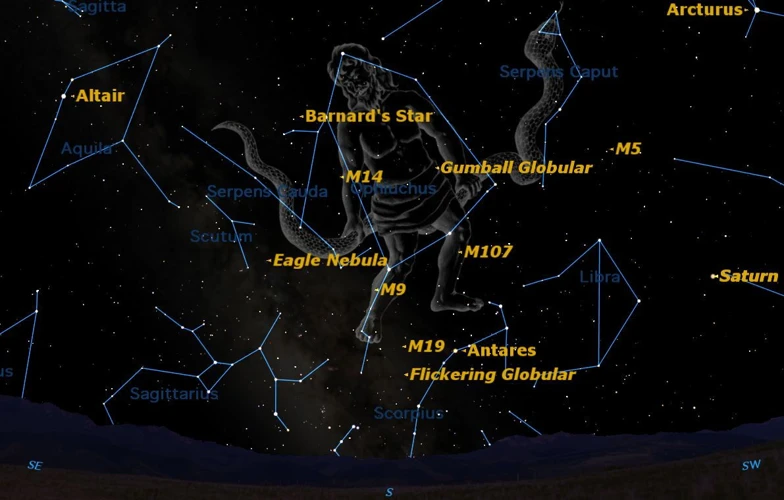
The origins of Ophiuchus can be traced back to ancient mythology and astrology. In various cultures, this constellation has been associated with different figures throughout history. In Greek mythology, Ophiuchus is often identified as Asclepius, the god of medicine and healing.
According to one myth, Asclepius was a skilled healer who possessed the ability to resurrect the dead. This power drew the attention of Hades, the Greek god of the underworld, who felt threatened by Asclepius’ ability to cheat death. As a result, Zeus intervened and punished Asclepius by striking him down with a lightning bolt. However, recognizing his immense contributions to humanity, Zeus immortalized Asclepius in the night sky as the constellation Ophiuchus.
Similarly, in Egyptian mythology, Ophiuchus is linked to Imhotep, a revered physician and architect. Imhotep was considered a divinely gifted healer and his reputation grew even after his death, leading to his deification and association with the constellation Ophiuchus.
Throughout history, the association of Ophiuchus with healing and the medical profession has endured. The symbol for Ophiuchus, a serpent entwined around a staff, is still commonly used today as a symbol of medicine.
The 13th Zodiac Sign Controversy
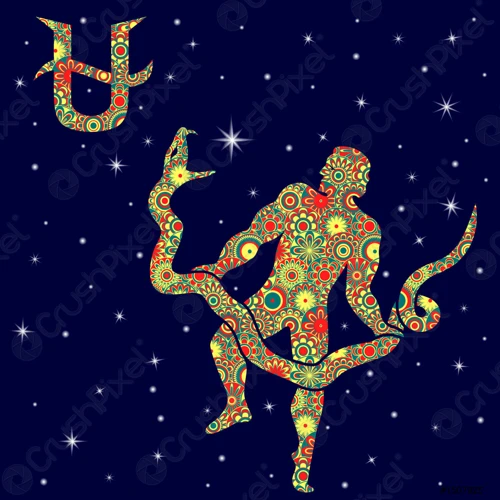
The 13th zodiac sign controversy revolves around the discovery and modern interpretation of Ophiuchus as a zodiac sign. Traditionally, the zodiac was known to consist of 12 signs, each representing a specific range of dates and personality traits. However, in recent years, there has been a growing debate about the inclusion of Ophiuchus as a 13th zodiac sign.
This controversy originated from the recognition of Ophiuchus as an official constellation by the International Astronomical Union (IAU) in 1930. This led astrologers and enthusiasts to ponder its significance and explore its astrological characteristics. Ophiuchus is believed to have traits such as wisdom, healing abilities, and a seeker of knowledge.
Those who advocate for the inclusion of Ophiuchus argue that its addition would provide a more accurate representation of the alignment of the sun with the constellations. They suggest that the astrological interpretation of the zodiac should reflect the astronomical reality of the Earth’s position in the sky.
However, this controversy has been met with skepticism by traditional astrologers, who argue that the inclusion of Ophiuchus would disrupt the established system of zodiac signs and their corresponding meanings. They contend that the symbolism and significance of the 12 zodiac signs have been deeply ingrained in astrology and should not be altered.
Despite the ongoing debate, many people find fascination in exploring the potential influence of Ophiuchus on their chart and horoscope. Whether one believes in the 13th zodiac sign or not, the controversy surrounding Ophiuchus adds an intriguing dimension to the world of astrology.
Historical Perspective: Ophiuchus throughout the Centuries
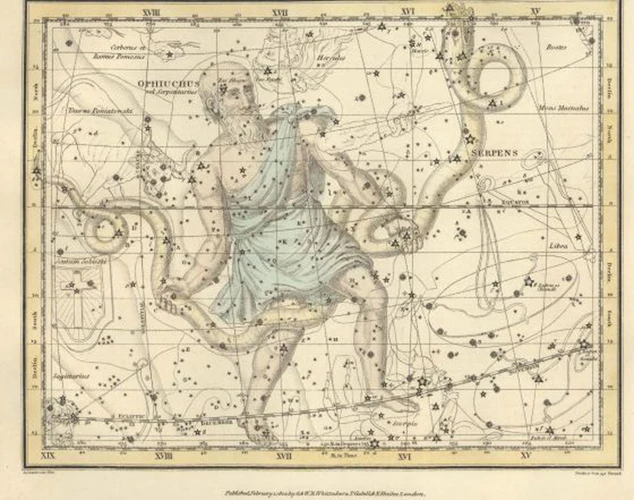
Exploring the historical perspective of Ophiuchus reveals its presence throughout the centuries in various cultures and astrological systems. In ancient Babylonia, the zodiac consisted of 12 equal divisions, with Ophiuchus considered a part of the larger constellation of Scorpio. The Babylonians assigned specific meanings and interpretations to each zodiac sign, including Ophiuchus, although it did not hold the same prominence as the other signs.
Similarly, in ancient Egypt, the zodiac was divided into 12 equal segments, with Ophiuchus also regarded as part of the constellation Scorpio. Egyptian astronomers observed the movements of Ophiuchus and acknowledged its existence, but it did not have a distinct identity separate from Scorpio.
Over time, as astrology evolved and different systems emerged, Ophiuchus and its significance underwent changes. In the Hellenistic period, Greek astrology placed greater emphasis on Ophiuchus and recognized it as a separate zodiac sign. However, this practice did not gain widespread acceptance, and astrologers continued to predominantly focus on the conventional 12 zodiac signs.
Modern Interpretation: Ophiuchus as the 13th Zodiac Sign
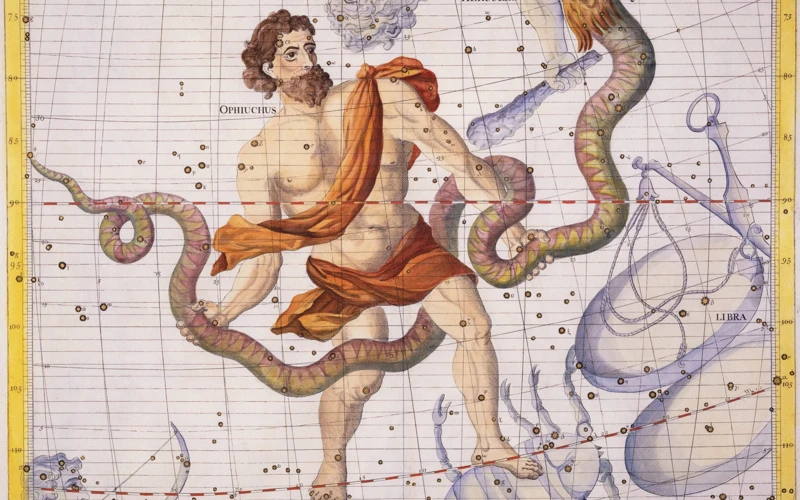
In modern interpretation, Ophiuchus has emerged as the controversial 13th zodiac sign, challenging the traditional twelve. Advocates argue that Ophiuchus brings a unique set of personality traits and characteristics to astrology, expanding the horizons for individuals seeking self-discovery and guidance.
Personality traits associated with Ophiuchus include intelligence, intuition, healing abilities, and a deep connection to spirituality. Those born under this sign are often described as natural healers and seekers of truth. They possess a magnetic and charismatic presence, drawing others towards them.
Compatibility plays a significant role in astrology, and Ophiuchus is said to be most compatible with those born under the signs of Taurus, Cancer, Scorpio, and Pisces. These matches are believed to create harmonious relationships where Ophiuchus’s nurturing nature complements the emotional depth of the other signs.
Ophiuchus’s inclusion as the 13th zodiac sign has led to an examination of natal charts and horoscopes. Astrologers now incorporate Ophiuchus into these calculations to provide a more comprehensive and accurate analysis of an individual’s personality, strengths, and weaknesses.
To explore the depths of Ophiuchus further, individuals can delve into topics such as the strengths and weaknesses of Ophiuchus as an Ascendant or gain insights into health, wellness, and self-care based on their Ophiuchus zodiac sign.
Debunking Myths and Clarifying Misconceptions
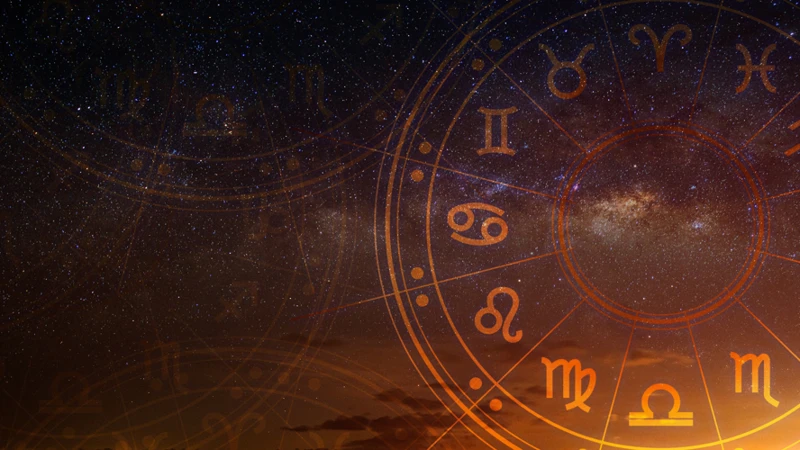
The notion of Ophiuchus as the 13th zodiac sign has sparked a flurry of myths and misconceptions that require clarification. One prevalent myth is that Ophiuchus has suddenly emerged as a new zodiac sign, overthrowing the established twelve. However, this is not the case. Ophiuchus has been part of the zodiac for centuries, although it has often been overlooked or dismissed due to various historical factors.
In order to understand this controversy, it is essential to debunk the misconception that Ophiuchus represents a sudden shift in the zodiac system. The concept of the zodiac is based on the path of the sun through the twelve constellations, known as the ecliptic. However, due to the phenomenon of precession, the alignment of the Earth’s axis changes gradually over time. This means that the positions of the constellations in relation to the sun have shifted over centuries, causing discrepancies between the zodiac signs and their corresponding constellations.
Another common misconception is that the addition of Ophiuchus as a zodiac sign alters the personality traits and compatibility of individuals. It is important to note that astrology is a complex system that takes into account various factors beyond just the sun sign. Personalized birth charts, which consider the exact time and location of an individual’s birth, provide a more comprehensive understanding of astrological influences. While Ophiuchus may have its own unique characteristics, it does not directly impact the traits associated with other zodiac signs.
By debunking these myths and clarifying misconceptions, we can gain a better understanding of the historical and astrological context surrounding Ophiuchus, appreciating its presence within the zodiac system without undermining the significance of the twelve established signs.
Conclusion
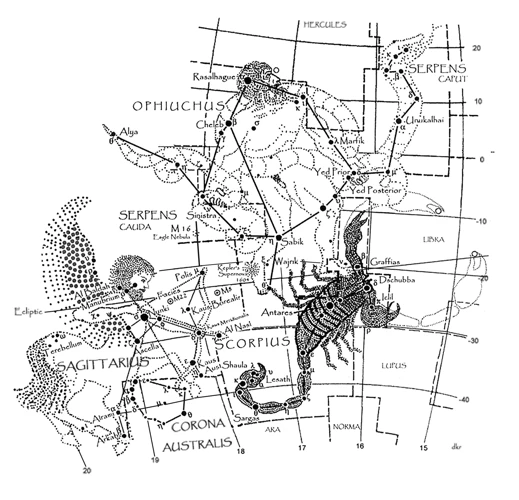
In conclusion, the controversy surrounding Ophiuchus and the 13th zodiac sign continues to intrigue and perplex astrology enthusiasts. While the origins of Ophiuchus can be traced back to ancient mythology and astrology, its place in the zodiac remains a topic of debate.
The discovery and modern interpretation of Ophiuchus have led to discussions about its astrological characteristics and its impact on the traditional zodiac signs. Some believe that Ophiuchus brings new personality traits and compatibility insights to those born under its influence, while others argue that it disrupts the established astrological system.
Throughout history, Ophiuchus has experienced periods of dismissal and rediscovery, and it now finds its place in modern astrology practices alongside the other twelve zodiac signs. As astrology continues to evolve, the significance of Ophiuchus may shift and adapt.
While clarifying misconceptions and aligning with astronomical facts is essential in understanding Ophiuchus, individuals can draw their own conclusions about its influence on their lives. Whether you embrace Ophiuchus as the 13th zodiac sign or remain loyal to the traditional zodiac system, the exploration and interpretation of celestial phenomena will undoubtedly continue to spark fascination and debate for generations to come.
Frequently Asked Questions
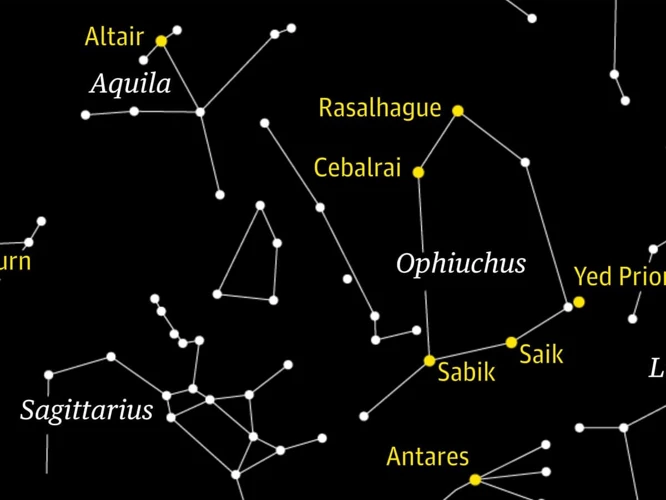
1. Is Ophiuchus officially recognized as the 13th zodiac sign?
No, Ophiuchus is not officially recognized as a zodiac sign in mainstream astrology. It is considered to be a sidereal constellation that lies along the ecliptic, which is the apparent path of the Sun across the sky.
2. What are the astrological characteristics of Ophiuchus?
Astrologically, Ophiuchus is believed to possess traits such as wisdom, intuition, and healing abilities. Individuals with Ophiuchus as their zodiac sign are described as passionate, charismatic, and seekers of truth.
3. How does the presence of Ophiuchus impact the traditional zodiac signs?
While some astrologers argue that the addition of Ophiuchus disrupts the traditional zodiac system, others believe that it simply adds another layer of complexity to individual natal charts. The impact on traditional zodiac signs may vary depending on the astrological system being used.
4. How was Ophiuchus perceived in early zodiac systems?
In ancient times, Ophiuchus was often associated with healing and medicine. It was considered to be a powerful and influential constellation, symbolizing the importance of health and wellbeing.
5. Why was Ophiuchus dismissed and later rediscovered?
As astrology evolved over time, other zodiac systems became more popular, pushing Ophiuchus into the background. However, with the rise of modern astrology and the increased interest in alternative zodiac signs, Ophiuchus has been rediscovered and reevaluated by some astrologers.
6. How does Ophiuchus fit into modern astrology?
In modern astrology, some astrologers incorporate Ophiuchus as the 13th zodiac sign, expanding the traditional zodiac wheel. It offers an alternative perspective and provides new insights for individuals seeking a deeper understanding of their astrological profile.
7. What personality traits are associated with Ophiuchus?
Individuals born under the sign of Ophiuchus are often described as intuitive, passionate, and wise. They have a natural ability to connect with others and possess a deep desire to make a positive impact in the world.
8. How does Ophiuchus influence natal charts and horoscopes?
If Ophiuchus is included in a natal chart, it can provide additional insight into an individual’s personality, strengths, and weaknesses. It may also affect aspects such as compatibility with other signs and potential career paths.
9. Does Ophiuchus align with astronomical facts?
Astronomically, Ophiuchus does exist as a constellation in the night sky. However, its inclusion as a zodiac sign is a matter of interpretation and is not universally accepted by all astrologers.
10. What role does precession play in zodiac shifts?
Precession refers to the gradual shift of the Earth’s rotational axis over time, which affects the alignment of the constellations with the seasons. This phenomenon is why the dates associated with zodiac signs have changed over centuries and why the idea of adding a 13th zodiac sign such as Ophiuchus has gained attention.
References
- What Is Ophiuchus And Is It Really Part Of The Zodiac?
- NASA Elegantly Shuts Down Those New Zodiac Star …
- Zodiac Constellations | Meaning, Visibility, Map & Timeline
Frequently Asked Questions

1. Is Ophiuchus a new zodiac sign?
No, Ophiuchus is not a new zodiac sign. It has been known for centuries in ancient mythology and astrology.
2. What does Ophiuchus represent in astrology?
Ophiuchus represents the Serpent Bearer and is associated with healing, wisdom, and transformation.
3. How does Ophiuchus impact the traditional zodiac signs?
Ophiuchus does not directly impact the traditional zodiac signs. It exists as an additional sign, offering different interpretations and characteristics.
4. When was Ophiuchus rediscovered in modern astrology?
Ophiuchus was rediscovered in modern astrology during the 20th century, gaining attention and sparking the 13th zodiac sign controversy.
5. What are the personality traits of Ophiuchus individuals?
Ophiuchus individuals are often seen as intuitive, passionate, and transformative. They possess strong leadership qualities and a desire for knowledge.
6. Does Ophiuchus have an influence on natal charts and horoscopes?
Yes, Ophiuchus can have an influence on natal charts and horoscopes, adding an additional layer of interpretation and insight.
7. Does Ophiuchus align with astronomical facts?
Yes, Ophiuchus aligns with astronomical facts. It is positioned along the ecliptic and can be observed in the night sky.
8. What is the role of precession in zodiac shifts?
Precession is the gradual shift of Earth’s rotational axis, which affects the alignment of the zodiac signs over time.
9. Can Ophiuchus compatibility be determined in relationships?
Yes, Ophiuchus compatibility can be determined in relationships, just like compatibility is analyzed for the traditional zodiac signs.
10. How can Ophiuchus be incorporated into daily horoscopes?
Ophiuchus can be incorporated into daily horoscopes by considering its characteristics and how they may manifest in daily experiences and challenges.

